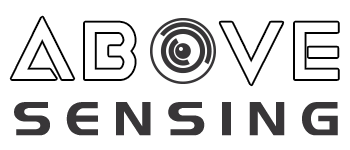The Riparian Habitat and its Connectivity in Creston Valley
Creston, BC
The Creston Valley
Credit: V. Stolyarov
Wildsight Creston Valley Branch alongside Above Sensing Ltd. is launching a pilot project to study wildlife movement patterns and the health of riparian areas.
Creston is a biodiversity hotspot in British Columbia and Canada, this is due to the incredible floodplain and wetland habitats in the valley, as well as the connection to the upland forest habitat. This area contains several at-risk species as well as grizzly bears, frogs, elk, kokanee, and owls which require different habitat types depending on the season or life stage. The connectivity between these habitat types is critical to maintaining healthy wildlife populations.
In an effort to learn more about this critical and biodiverse area, Wildsight Creston Valley branch has partnered with Above Sensing Ltd., a remote sensing company that specializes in drone mapping. High-resolution aerial data will be collected and processed using AI-powered geospatial analytics to quantify and analyze the quality of the riparian habitat and its connectivity.
The drone data collection for the pilot project took place in a 500-ha area of Canyon-Lister on October 25th, 2022.
If you live in the area, it is understandable that privacy concerns may arise in regard to this drone data collection and research operation. Drones are classified as aircraft; given the pilot’s certification level, they can utilize most of the airspace just like any regular airplane or helicopter. That means it is not illegal to fly over your property. However, drone operators MUST follow the general privacy guidelines outlined in the federally regulated Personal Information Protection and Electronic Documents Act (PIPEDA).
It’s worth noting that British Columbia has its own stricter privacy laws which are based on the PIPEDA. However, privacy laws do not apply when the purpose of an aerial survey falls under journalistic, artistic, literary, or academic purposes. Nevertheless, it is essential to be open about ongoing projects and share information with the community if potential concerns arise.
At Above Sensing Ltd., we care deeply about privacy. In Canada, the commercial use of our drones falls under the Personal Information Protection and Electronic Documents Act (PIPEDA) and the Personal Information Protection Act (PIPA) in B.C. Therefore, we do not collect any personal information during our flights. We focus on collecting images that are similar to those from satellites. Maximum effort is used for ensuring only the imagery needed for projects is collected.
We will do our best to provide private landowners adjacent to flight operations where part of their property might be mapped with a written notice and contact information to access the imagery.
We will always provide the opportunity for private landowners to request the data collected. For more information, please reach out to info@abovesensing.ca or call 250-793-1010.



